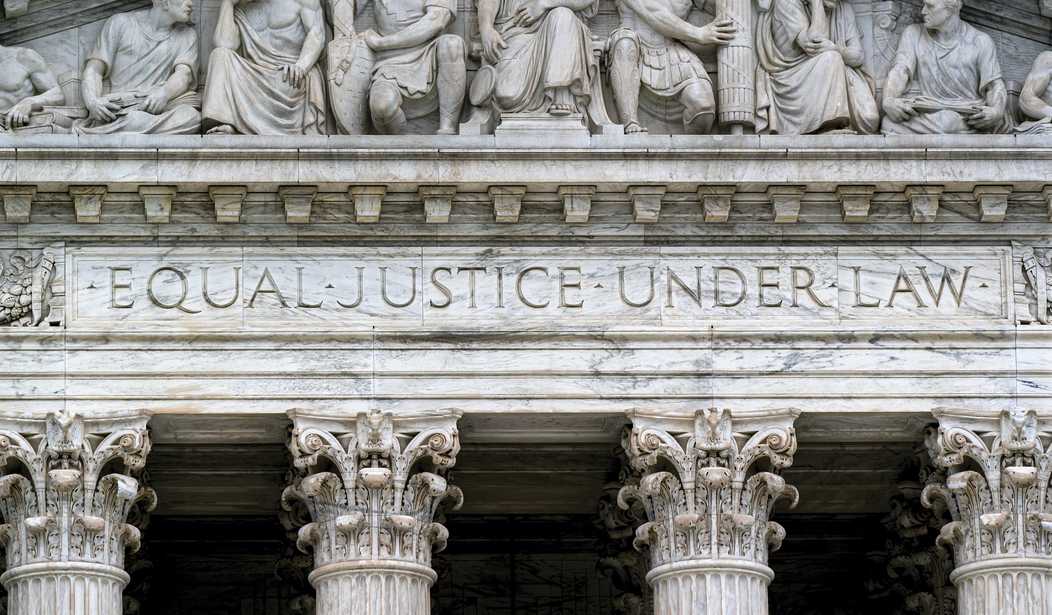I was about to start this installment by remarking on how the Supreme Court seems to be dragging its feet — we're at the end of May and they've only issued 34 opinions, which means there are 27 or so left to hand down in June. But...then I checked against the past three years and...they're actually ahead of schedule. As of May 30, 2024, they'd only issued 29 opinions, for instance. So, no, they're not dragging their feet — we're just in for a busy June. (Which is pretty much always the case.)
That said, they did issue three decisions in the last half of May, so we'll get those out of the way before things kick into high gear. We've got two unanimous decisions and an even split.
Late May 2025 Decisions
Date: May 22, 2025
Author: Barrett
Split: 9-0
Dissent: N/A
Appeal From: 3rd Circuit
The Pennsylvania Department of Transportation (PennDOT) awarded petitioners Stamatios Kousisis and Alpha Painting and Construction Co. two contracts for painting projects in Philadelphia. Federal regulations required contract awardees to subcontract a portion of every contract to a disadvantaged business enterprise. So as part of the bidding process, Kousisis falsely represented that Alpha would obtain its paint supplies from Markias, Inc., a prequalified disadvantaged business. This was a lie. Unbeknownst to PennDOT, Kousisis arranged for Markias to function as a mere “pass-through” entity. As a passthrough, Markias did not provide any paint supplies. To the contrary, its only role was that of a paper pusher, funneling checks and invoices to and from Alpha’s actual suppliers. Not only did this arrangement contradict Kousisis’s prior representations, it also violated the requirement that disadvantaged businesses perform a “commercially useful function.” 49 CFR §26.55(c). In the end, however, Alpha performed the painting projects to PennDOT’s satisfaction and pocketed over $20 million in gross profit.
The Government charged Alpha and Kousisis with wire fraud and conspiracy to commit the same. 18 U. S. C. §§1343, 1349. The charges were premised on the fraudulent-inducement theory—in other words, that petitioners had induced PennDOT to award them the painting contracts under materially false pretenses. After a jury convicted Alpha and Kousisis of wire fraud, they moved for acquittal. In their view, despite the lack of disadvantaged-business participation, PennDOT had received the full economic benefit of its bargain. So, petitioners contended, the Government could not prove that they had schemed to defraud PennDOT of “money or property” as §1343 requires. The Third Circuit rejected this argument, deepening the division over the validity of a federal fraud conviction when the defendant did not seek to cause the victim net pecuniary loss.
- Whether deception to induce a commercial exchange can constitute mail or wire fraud, even if inflicting economic harm on the alleged victim was not the object of the scheme.
- Whether a sovereign's statutory, regulatory, or policy interest is a property interest when compliance is a material term of payment for goods or services.
- Whether all contract rights are "property."
Holding: Affirmed.
A defendant who induces a victim to enter into a transaction under materially false pretenses may be convicted of federal fraud even if the defendant did not seek to cause the victim economic loss
Skinny: Fraud's still fraud even if the victim isn't financially harmed. (And even if the victim is the government.) Don't lie to land a contract. Better yet: Don't lie.
OK Charter School Board v. Drummond
Date: May 22, 2025
Author: Per Curiam
Split: 4-4; Barrett did not participate
Dissent: Unknown
Appeal From: Oklahoma Supreme Court
The dispute began in 2023, when Oklahoma’s charter school board approved an application by the archdiocese of Oklahoma City and the diocese of Tulsa to create a virtual Catholic charter school, St. Isidore of Seville, named after the patron saint of the internet. The school was intended to be an explicitly religious one that would participate in “the evangelizing mission of the church.” The school’s contract with the charter school board specifically allowed the school to freely exercise its religious beliefs.
Gentner Drummond, Oklahoma’s Republican attorney general, went to the state supreme court, asking it to invalidate the charter school board’s contract with St. Isidore.
The state supreme court granted that request. Because St. Isidore is a public school, it concluded, state laws require it to be non-sectarian. That mandate, it added, is consistent with both the state and federal constitution, which bar the state from “using public money for the establishment of a religious institution.”
The school and the charter school board came to the Supreme Court last fall, asking the justices to take up their case and reverse the state court’s ruling.
- Whether the academic and pedagogical choices of a privately owned and run school constitute state action simply because it contracts with the state to offer a free educational option for interested students.
- Whether a state violates the Free Exercise Clause by excluding privately run religious schools from the state's charter-school program solely because the schools are religious, or whether a state can justify such an exclusion by invoking anti-establishment interests that go further than the Establishment Clause requires.
Holding: Affirmed.
Skinny: No public money for religious schools in Oklahoma.
READ MORE: Supreme Court: Public Funding Is Out for Oklahoma Religious Schools
Seven County Infrastructure Coalition v. Eagle County
Date: May 29, 2025
Author: Kavanaugh
Split: 8-0; Gorsuch did not participate
Dissent: N/A
Appeal From: D.C. Circuit
Under federal law, new railroad construction and operation must first be approved by the U. S. Surface Transportation Board. 49 U. S. C. §10901. In 2020, the Seven County Infrastructure Coalition applied to the Board for approval of an 88-mile railroad line connecting Utah’s oil-rich Uinta Basin to the national freight rail network, facilitating the transportation of crude oil to refineries along the Gulf Coast. As part of its project review, the Board prepared an environmental impact statement (EIS) that addressed significant environmental effects of the project and identified feasible alternatives that could mitigate those effects, as required by the National Environmental Policy Act (NEPA). The Board issued a draft EIS and invited public comment. After holding six public meetings and collecting more than 1,900 comments, the Board prepared a 3,600-page EIS that analyzed numerous impacts of the railway’s construction and operation. Relevant here, the EIS noted, but did not fully analyze, the potential environmental effects of increased upstream oil drilling in the Uinta Basin and increased downstream refining of crude oil. The Board subsequently approved the railroad line, concluding that the project’s transportation and economic benefits outweighed its environmental impacts. Petitions challenging the Board’s action were filed in the D. C. Circuit by a Colorado county and several environmental organizations. The D. C. Circuit found “numerous NEPA violations arising from the EIS.” 82 F.4th 1152, 1196. Specifically, the D. C. Circuit held that the Board impermissibly limited its analysis of the environmental effects from upstream oil drilling and downstream oil refining projects, concluding that those effects were reasonably foreseeable impacts that the EIS should have analyzed more extensively. Based on the deficiencies it found in the EIS, the D. C. Circuit vacated both the EIS and the Board’s final approval order.
Whether the National Environmental Policy Act requires an agency to study environmental impacts beyond the proximate effects of the action over which the agency has regulatory authority.
Holding: Reversed and remanded.
The D. C. Circuit failed to afford the Board the substantial judicial deference required in NEPA cases and incorrectly interpreted NEPA to require the Board to consider the environmental effects of upstream and downstream projects that are separate in time or place from the Uinta Basin Railway.
Skinny: This project is back on track.
READ MORE: Supreme Court May Have Set a New Environmental Precedent
You can check out prior installments of The Skinny on SCOTUS series here.















